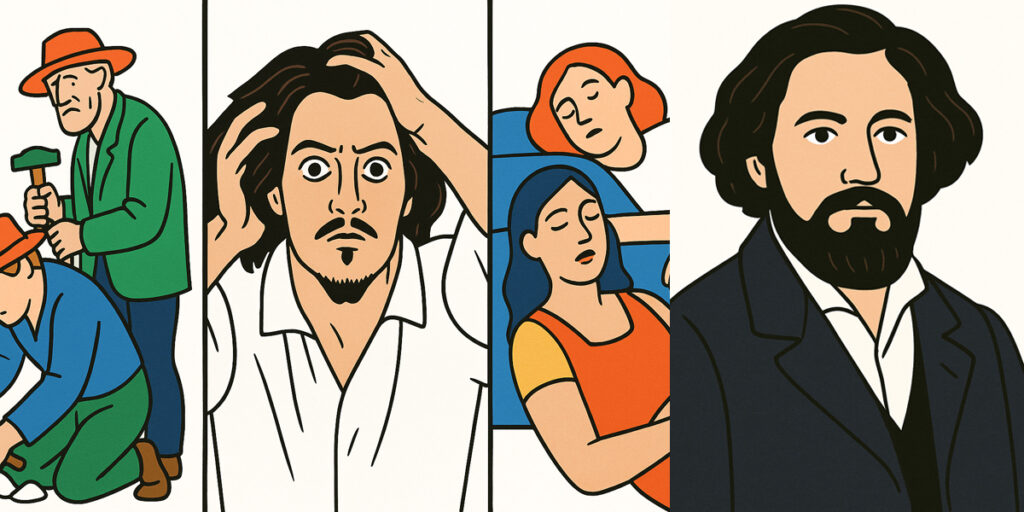In the heart of Southern Africa, where the rhythm of progress hums softly through the challenges of time, a young girl named Luisa Dias Diogo once dreamed beyond the dusty streets and rustling palms of Mozambique. She was born not with riches, nor surrounded by towering institutions, but with something far more powerful—a sharp mind, a deep sense of justice, and an unwavering belief that women could hold up half the sky, and more.
From her earliest days, Luisa observed the quiet strength of the women around her. They carried baskets, cooked meals, raised children, and tilled the soil. Their hands shaped communities, but their voices were too often left unheard. This silent imbalance never sat easily in Luisa’s heart. She saw the power in unity, in economics, and in education, and she began to understand early that change was not a thunderclap—it was a steady flame lit one action at a time.
Her journey began with education. She studied diligently, not to impress others, but to transform her world. Her path took her into the world of economics, a field dominated by theories, statistics, and traditionally by men. But Luisa wasn’t there just to add diversity to the room—she was there to shape the very core of the conversation. Her intellect was undeniable. She studied at the University of Eduardo Mondlane in Mozambique, and later deepened her expertise in finance and development economics at the University of London.
With every book she read, every lesson she learned, Luisa wasn’t just building a career—she was arming herself with tools to rebuild her country.
Mozambique, a nation that had weathered the storms of colonization and civil war, needed steady hands and clear minds. The war had left wounds not just in the earth but in the economy, in the hearts of families, and especially in the roles that women were allowed to play. Luisa stepped into the national scene with a resolve shaped by experience and empathy. She joined the Ministry of Planning and Finance, rising steadily as her ideas transformed dusty policies into lifelines for real people.
She worked with the World Bank and carried a vision of balanced development. She understood the fine threads that connected rural women to national prosperity. She saw the cracks in the system and pushed tirelessly for reform—not the kind that stayed trapped in papers and conferences, but the kind that built health clinics, brought clean water, and gave mothers and daughters a voice in the economy.
Then came 2004, a turning point in Mozambique’s history. Luisa Diogo was appointed the Prime Minister—the first woman in the nation to rise to that role.

For many, her appointment was a symbol. For Luisa, it was a mission.
She did not enter the office with prideful steps. She entered with responsibility heavier than the marble walls around her. She carried the hopes of girls who had never seen a woman lead. She carried the urgency of rebuilding a post-conflict economy. And most of all, she carried the conviction that a nation can never move forward with half its people left behind.
Luisa believed in numbers, but she believed even more in people. Her policies reflected that. She championed gender equity not as a side initiative but as an engine for development. She understood that microcredit programs could do more than provide loans—they could provide dignity. She saw the potential of business cooperatives led by women in villages and towns. She knew that when women earned, children stayed in school longer. She knew that when women were allowed to lead, corruption decreased, and community investments increased.
Her speeches were firm, her strategies calculated, and her compassion genuine. But behind the scenes, it wasn’t easy. Change is never quiet, and resistance never sleeps. There were voices that questioned her leadership, eyes that watched for her to stumble. But Luisa did not flinch. She did not shout back. She worked harder. She listened more. She collaborated with international partners, shaped economic policies, and refused to let gender stand in the way of good governance.
Her time as Prime Minister became a chapter of Mozambique’s history that showed what leadership could look like when grounded in humanity and vision. But even after 2010, when she stepped away from the Prime Minister’s office, she did not fade from the scene. She became even more engaged in empowering women globally, working across continents to promote sustainable development rooted in equality and local strength.
Luisa Diogo’s legacy is not just written in government reports or economic indexes. It lives in the thousands of women who stood a little taller because she proved they could. It lives in the cooperative fields where women now plan business strategies as well as planting seasons. It lives in the classrooms where girls now learn that the prime minister’s chair is not out of reach.
She never asked to be called a hero, and she never acted like one. She moved like a torchbearer, lighting paths where darkness had settled too long. In every position she held, whether in a ministry hall or a rural training center, she carried her purpose: to transform survival into success, and silence into power.
Luisa Diogo turned economics into empathy, politics into progress, and leadership into legacy. She taught the world that real growth begins with inclusion, that a nation rises fastest when its women are not waiting behind—but are building beside.
And somewhere in Mozambique today, a young girl is sitting at a wooden desk, drawing big dreams on a small page, believing she too can lead, because someone like Luisa Diogo already did.


